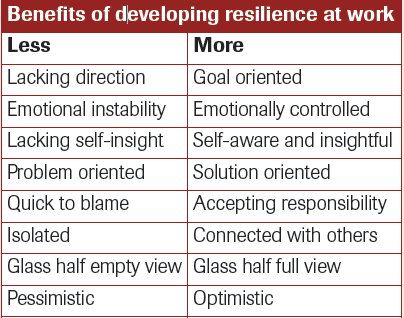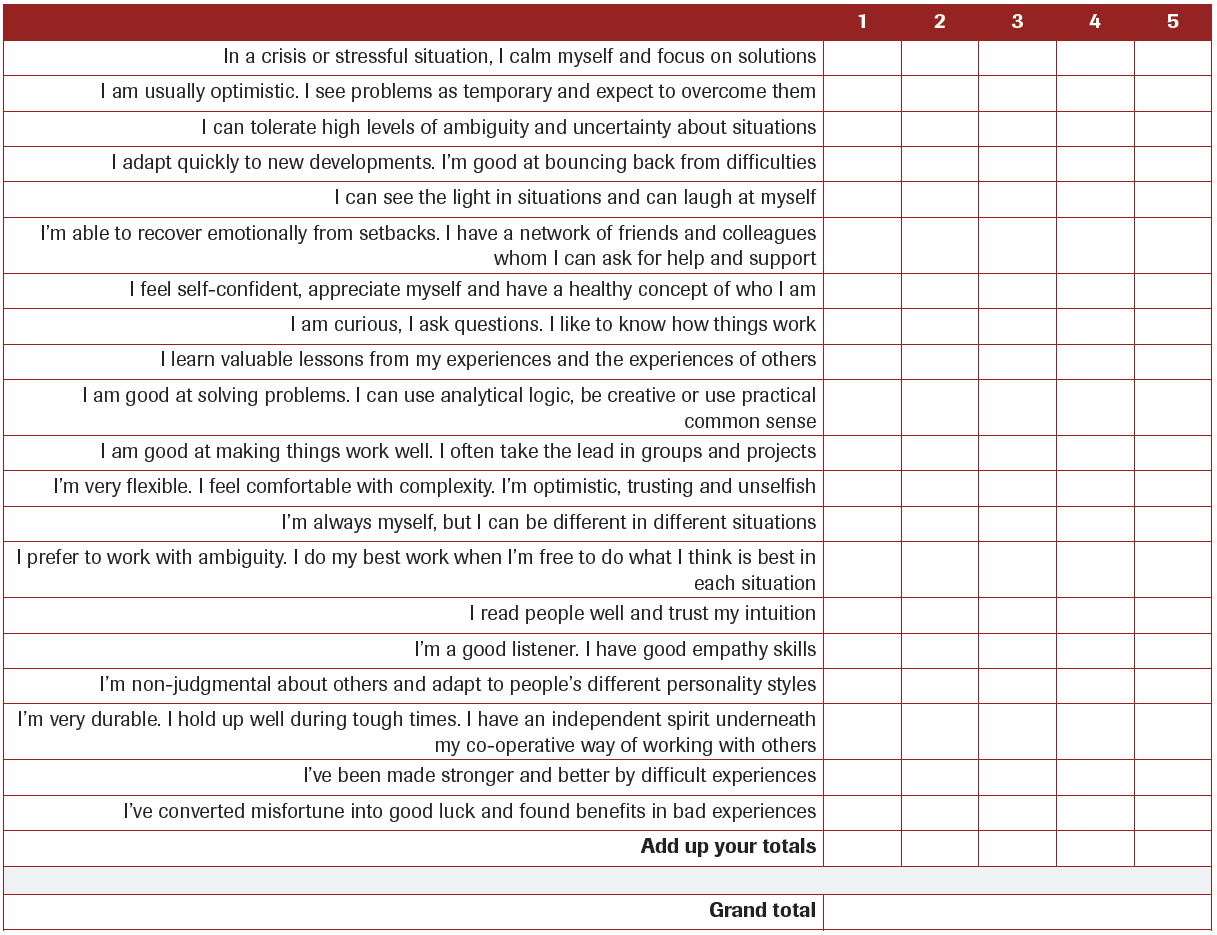Even if you're not a naturally resilient person, you can improve and work to develop a resilient mindset and attitude. To do so, try to incorporate as many of the following into your daily life:
- Get enough sleep and exercise, and learn to manage stress. When you take care of your mind and body, you're better able to cope effectively with challenges in your life. Exercise, holidays, and other pastimes help you disassociate from a stressful situation and gain some much-needed perspective
- Practise thought awareness. Resilient people don't let negative thoughts derail their efforts. Instead, they consistently practice positive thinking. 'Listen' to how you talk to yourself when something goes wrong. If you find yourself making statements that are negative, pervasive, or lacking perspective, correct these thoughts in your mind
- Learn from your mistakes and setbacks. Every mistake has the power to teach you something important, so don't stop searching until you've found the lesson in every situation.

- Choose your response. We all experience bad days and we all go through our share of crises. But we have a choice in how we respond. We can choose to react negatively or in a panic, or we can choose to remain calm and logical to find a solution. Your reaction is always up to you
- Maintain perspective. Resilient people understand that although a situation or crisis can seem overwhelming at the moment, it may not make that much of an impact over the long term. Try to avoid blowing events out of proportion.
- If you don't already, learn to set SMART (specific, measurable, achievable, relevant, timebound), effective personal goals - it's incredibly important to set and achieve goals and to learn from your experiences
- Build your self-confidence and self-belief. Belief in yourself enables you to take appropriate risks. When you develop confidence and a strong sense of self, you have the strength to keep moving forward, and to take the steps you need to get ahead
- Develop strong relationships with your colleagues and team. People who have strong connections at work are more resistant to stress and are happier in their roles.
How resilient are you?
This short quiz will take you a few minutes to complete and will show you where you are doing well and where you might need to improve.
Rate yourself from 1 to 5 (1 = very little, 5 = frequently or strong)

Scoring
Over 85: You demonstrate high levels of resilience
65-85: You show the ability to be resilient in most situations
50-65: You can cope in some situations
40-50: You really struggle to be resilient
Under 40: You really need to work on developing resilience
Your strengths
At some point in our lives, we all face setbacks and things that come along and blindside us. Some of these challenges may be relatively minor, while others can have a major impact.
In this module, we have highlighted that resilient people are able to use their skills and strengths to cope and recover, whereas that lacking resilience can become overwhelmed by these experiences and simply fall apart. They may find themselves dwelling on problems and using unhealthy coping mechanisms.
By working on the simple tips here and through a fuller review of the suggested further reading, you will find your personal resilience capacity increasing. This will not happen overnight, but it is something that you can work on and develop. In this fast-paced world, few would argue that this is an essential skill for both our professional and personal lives.
Further reading
1. McGee, P. 2015. S.U.M.O (Shut Up, Move On), the straight-talking guide to succeeding in life. Chichester: John Wiley and Sons
2. Crutchley, L. 2015. How to be happy (or at least less sad). London: Ebury Publishing
3. Webb, L. 2012. How to be happy, simple ways to build your confidence and resilience to become a happier, healthier you. Chichester: Capstone Publishing
Resiliency Quiz took from resilicencyquiz.com (Practical Psychology Press) and based on The Resiliency Advantage by Al Siebert (Berrett-Koehler)
The next step is to put these ideas into action. Finish by recording your learning outcomes.
